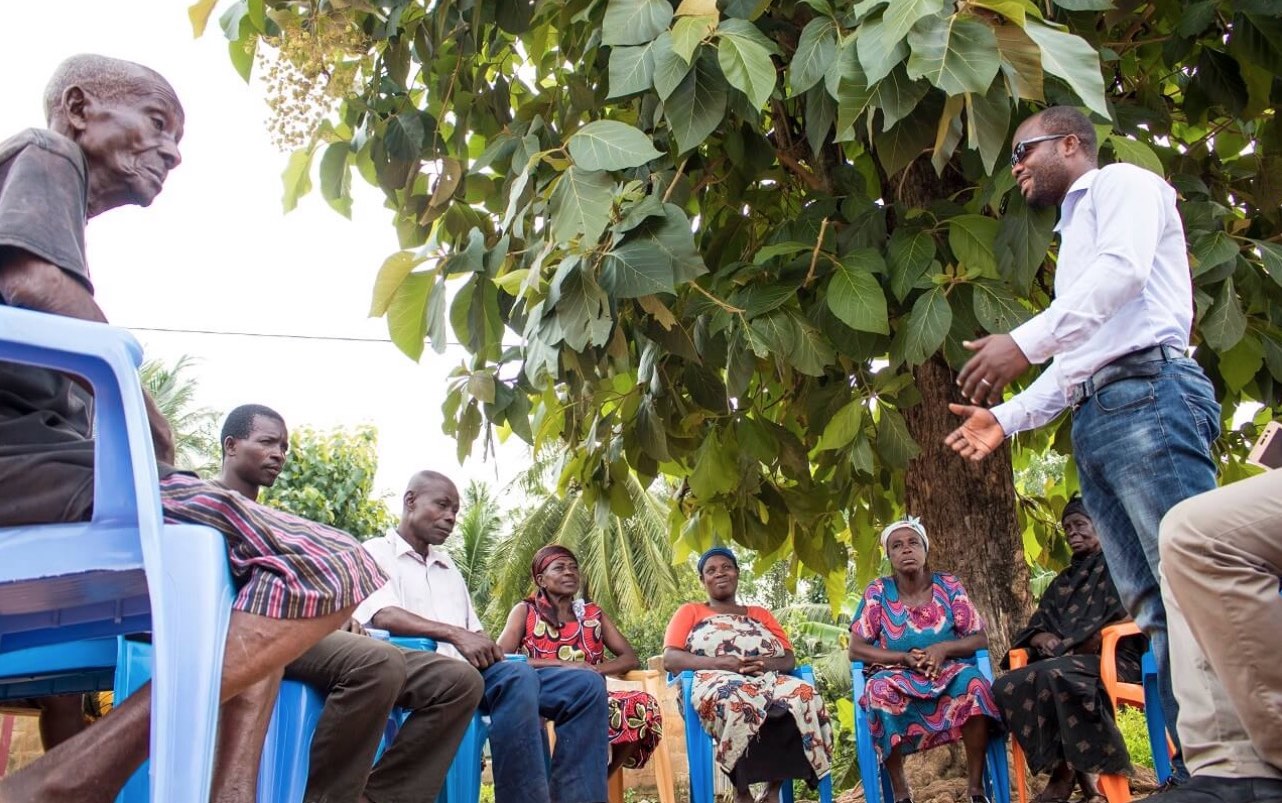On March 15, Ghana celebrated the creation of 38 new metropolitan, municipal, and district assemblies (MMDA), increasing the total number from 216 to 254. Since 2000, the number of districts has more than doubled with new MMDAs also created in 2004, 2008, and 2012. As in each prior case, the government justified the most recent territorial splitting by claiming that the new MMDAs would help deepen decentralization and thereby “accelerate socioeconomic development.” Yet, it seems that more difficult reforms that would truly improve the ability of local governments in Ghana to provide services are being pursued with less vigor.
This is one finding from a recent IFPRI Discussion Paper and associated Policy Note in which I examined the impact of the devolution of agricultural functions to Ghana’s MMDAs. Devolution is the most comprehensive form of decentralization and entails the transfer of authority, autonomy, and accountability to elected sub-national governments. Although Ghana has been committed to decentralization since the passing of the 1993 Local Governance Act, it typically has practiced deconcentration—i.e., local government is solely responsible for implementation and accountability extends upwards to line ministries within the central government.
In 2009, however, the Ghanaian Parliament passed Local Government Instrument 1961 to devolve key sectors and functions from the central government to the MMDAs. Agriculture, along with public works and social welfare, was among the first sector to be devolved. This transfer was formally institutionalized in 2012. In addition, LI 1961 stipulated that the staff of the MMDA departments were to be transferred from the national civil service to a newly created Local Government Services (LGS). A composite budget system also was introduced, integrating the budgets of all departments of the MMDAs into the overall budget for the MMDA. Except for national programs, resources for agriculture no longer come directly from the Ministry of Food and Agriculture (MoFA) but rather predominantly flow from the Ministry of Finance and Economic Planning (MoFEP) via the MMDAs.
To look at the impact of this transition, surveys were conducted with 80 District Directors of Agriculture (DDAs) and 960 predominantly rural households, composite budget data was analyzed for the MMDAs since 2012, and semi-structured interviews were conducted were knowledgeable stakeholders within MoFA, MoFEP, LGS, as well as with district coordinating directors (DCDs) in select MMDAs. One of the main findings is that although DDAs are now legally responsible for 25 functions, ranging from on-farm adaptive techniques, agricultural extension, and water and soil conservation, they are largely unable to perform their mandate due to a lack of resources. On average, 39 percent of staff positions are vacant within the MMDA departments of agriculture. Approximately 73 percent of the DDAs claim they are personally funding more field visits to farmers now than they did prior to devolution. Sixty-seven percent believe that the composite budgeting process has decreased disbursements for agriculture while 76 percent claim that the process has worsened the timeliness of disbursements.
Trends from the subnational budget data largely support the views of the DDAs. Between 2012 and 2016, agriculture’s share in the total budget for the MMDAs largely plateaued, ranging from 7.9 to 7.4 percent. By contrast, other devolved sectors such as works, increased from 10.5 to 14.9 percent of budgeted expenditures. Actual expenditures in real terms for agriculture at the MMDA level have been even more disappointing, falling from 33 Ghanaian cedis (GHC) per agricultural household in 2012 to less than 15 GHC three years later.
There are at least three challenges to improving the availability of funding for agriculture at the MMDA level. First, composite budgeting introduces a longer channel of disbursement, via MoFEP and then the MMDAs, than it did when it flowed directly from MoFA. In contrast to the line ministries, the MMDAs need to coordinate the disbursement of funding across multiple departments within their jurisdiction. As such, there are not only more opportunities for delays but also for those delays to exert a cumulative impact on reaching the DDAs in time for program implementation in a particular year. Second, the main form of inter-governmental transfers, the District Assemblies Common Fund (DACF), is heavily earmarked for investments in sectors other than agriculture. Third and relatedly, fiscal decentralization remains limited, with most MMDAs unable to exercise genuine expenditure autonomy. This is reflected in their heavy dependence on the DACF due to their inability to generate sufficient internally generated revenue.
The latter has particular implications for Ghana’s propensity for continually creating new districts. For example, Akuapim South became a new district in 2012 after splitting off from its parent district of Nsawam Adoagyiri. The DCD complains that they now have even fewer sources of internally generated revenue due to the lack of lorry parks and marketplaces in the new district where revenues can be collected. Previous research I’ve conducted shows that the proliferation of MMDAs can be electorally rewarding to the incumbent government since new districts result in new parliamentary constituencies in Ghana. However, there is little evidence that it is indeed the right way to speed up development, in agriculture and other sectors, in the absence of fiscal decentralization.
Danielle Resnick is a Senior Research Fellow in IFPRI’s Development Strategy and Governance Division (DSGD). This post first appeared on IFPRI’s Ghana Strategy Support Program blog. It is based on research that is not yet peer-reviewed.







